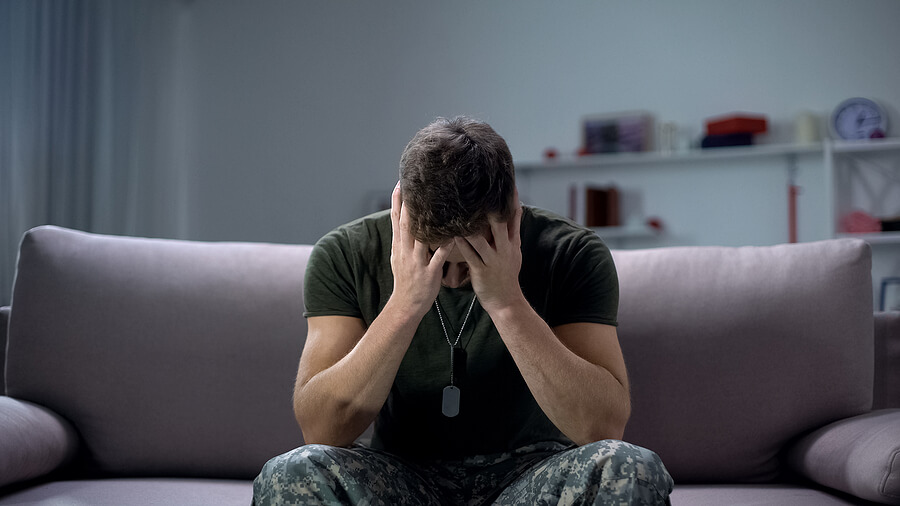Caring for Veterans with PTSD
Category:

Fireworks are almost everyone’s favorite part of Independence Day festivities, and many major cities have reported them going off throughout the entire month. While the jury is still out as to why, the general consensus is that people are bored and it’s a way to let off steam after the past few months of stay-at-home orders. When we think about those negatively affected by the loud booms associated with these pretty sparkles of color, the first group that comes to mind (besides pets) is veterans. Our minds immediately provide us with a mental image of a senior male veteran standing on his porch muttering about the noise and nonsense, and while many people just ignore it, we need to remember what this veteran may be dealing with: post-traumatic stress disorder (PTSD).
While this may be our general idea of a veteran struggling with PTSD, it doesn’t just affect elderly male veterans. Any veteran who was placed in a high-combat situation could be diagnosed with PTSD, and it’s important that we do what we can to support them. With PTSD Awareness Day having been this past weekend (June 27, 2020) and July 4th just around the corner, now is the perfect time to learn about PTSD, its symptoms, treatment options, and how we can help veterans manage it.
What is PTSD?
Post-traumatic stress disorder is a disorder in which a person has difficulty recovering after experiencing or witnessing a terrifying event. The condition may last months or years, with triggers that can bring back memories of the trauma accompanied by intense emotional and physical reactions. For veterans, this event is usually related to a combat tour, and loud noises (such as fireworks or a car backfiring) can make them feel like they are right back in the combat zone.
Symptoms of PTSD
PTSD symptoms can take many forms, and typically depend upon each person’s individual circumstances. Common symptoms include:
- Nightmares or unwanted memories of the trauma
- Avoidance of situations that bring back memories of the trauma
- Heightened reactions
- Anxiety
- Depressed mood
- Emotional detachment or unwanted thoughts
Veterans may also experience behavioral, psychological, mood, and sleep pattern symptoms. They may also be on guard all of the time, jumpy, and emotionally reactive.
PTSD Treatment Options
Treatment for PTSD patients includes different types of trauma-focused psychotherapy, as well as medications to manage symptoms. There are three common therapies used to treat PTSD:
- Cognitive processing therapy (CPT)
- Teaches patients to reframe negative thoughts about the trauma. It involves talking with their provider about their negative thoughts and doing short writing assignments.
- Eye movement desensitization and reprocessing (EMDR)
- Helps patients process and make sense of their trauma. It involves calling the trauma to mind while paying attention to a back-and-forth movement or sound (like a finger waving side to side, a light, or a tone).
- Prolonged exposure (PE)
- Teaches patients how to gain control by facing their negative feelings. It involves talking about their trauma with a provider and doing some of the things they have avoided since the trauma.
Medications such as SSRIs ease the symptoms of depressed mood and anxiety and are often used in tandem with therapy.
Caring for a Veteran with PTSD
If a veteran loved one has been diagnosed with PTSD, your first thought is probably “What can I do to help them cope?” You may want to alleviate their triggers or find coping strategies for them to use. However, there are a few things to keep in mind when caring for a veteran loved one with PTSD.
- Don’t take their symptoms personally
- Don’t pressure your loved one into talking
- Be patient and understanding
- Try to anticipate and prepare for PTSD triggers
- Take care of yourself
It’s important to remember that as the caregiver, you need to take time for yourself as well. If you find yourself in need of assistance, we can help.
Summary
While not all veterans suffer from PTSD, an estimated 11-20% of veterans do. With the July 4th holiday this weekend, keep those suffering from PTSD in mind and do what you can to help them.
Subscribe
Date: 2020-07-01
Category:
